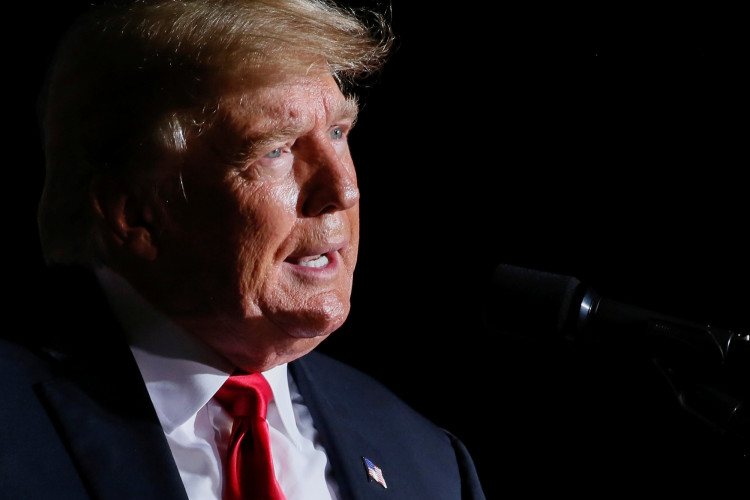Former President Donald Trump has been reindicted in the ongoing federal investigation into his efforts to overturn the results of the 2020 presidential election, as Special Counsel Jack Smith adjusts the case in response to a recent Supreme Court decision. The updated charges, presented in a superseding indictment, reflect the high court's recent ruling on presidential immunity, significantly altering the landscape of this high-profile legal battle.
The 36-page superseding indictment, filed on Tuesday, revises the original charges against Trump to align with the Supreme Court's ruling from last month, which affirmed broad immunity protections for presidents regarding their official duties. The new indictment, presented to a grand jury that had not previously reviewed the case, eliminates references to Trump's use of the Department of Justice (DOJ) and certain other elements of the initial indictment that were deemed to be within the scope of his official duties.
"The superseding indictment reflects the Government's efforts to respect and implement the Supreme Court's holdings and remand instructions," said a Justice Department spokesperson. The adjustment comes after the Supreme Court ruled that Trump is entitled to immunity from criminal prosecution for actions undertaken while in office, a decision that prompted the reassessment of the charges in this case.
The original indictment, unveiled last August, had charged Trump with a "criminal scheme" to subvert the election results, including allegations of obstructing the function of the federal government through a range of tactics such as attempting to influence state officials, arranging fraudulent electors, and leveraging DOJ resources for investigations. However, the Supreme Court's ruling prompted a revision of these charges to exclude activities that were directly related to Trump's official duties as president.
The new indictment omits key allegations about Trump's interactions with the DOJ and his alleged refusal to act as rioters stormed the Capitol on January 6, 2021. It reframes the case to emphasize Trump's personal and political motivations, rather than his official presidential actions. For example, the revised indictment now underscores that Trump's actions were undertaken in his capacity as a candidate rather than as president.
The updated indictment also simplifies the presentation of Trump's alleged false claims about election fraud. Whereas the original document detailed how Trump was informed by numerous officials, including members of his own administration and the DOJ, that his claims were false, the new indictment merely notes that Trump "was on notice that his claims were untrue" and that he proceeded to disseminate these claims despite being informed otherwise.
In addition to removing references to high-ranking government officials who had contradicted Trump's claims, the revised indictment eliminates allegations related to Trump's response to the Capitol riot and his interactions with his advisers during that period. The new document now focuses on Trump's personal actions and motivations, removing much of the context related to his official duties.
Trump has pleaded not guilty to the charges and has repeatedly dismissed the prosecution as politically motivated. Following the announcement of the superseding indictment, Trump labeled it "ridiculous" on his social media platform Truth Social, expressing shock that the indictment was filed immediately after the Supreme Court's decision on immunity.
Special Counsel Jack Smith's revisions to the indictment come as part of an effort to navigate the complex legal landscape following the Supreme Court's ruling. While the new charges retain the core allegations of conspiracy to defraud the United States, they are adjusted to fit within the narrower scope of permissible prosecution set by the high court.
The timeline for the trial remains uncertain, with the new indictment potentially leading to further delays. Both the defense and prosecution face a deadline to propose next steps to U.S. District Judge Tanya Chutkan, who is overseeing the case. A hearing is scheduled for September 5 to determine the future course of the proceedings.
In addition to this case, Trump faces other legal challenges, including charges related to classified documents in Florida and election interference in Georgia. Smith's team is also appealing a recent dismissal of the classified documents case, while Trump was convicted in New York for falsifying business records earlier this year.






